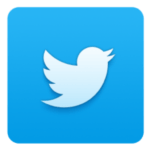
Introduction to the Digital Age
Welcome to the Digital Age, where information is just a click away. With endless resources at our fingertips, learning has never been more accessible. However, this abundance can quickly become overwhelming. The challenge lies in sifting through vast amounts of data to find what truly matters. As we navigate this sea of knowledge, understanding how to manage information overload becomes crucial for effective learning and productivity. Let’s explore how we can thrive in this digital landscape without feeling lost amidst the noise.

The Rise of Information Overload
The digital age has ushered in an unprecedented flow of information. From social media feeds to endless articles, the sheer volume can be overwhelming.
Every day, we encounter countless data points. Emails flood our inboxes while notifications ping our devices incessantly. It’s easy to feel lost amidst this sea of content.
This constant barrage creates a paradox. While knowledge is more accessible than ever, distinguishing valuable insights from noise becomes a challenge. Distraction lurks at every corner.
As we scroll through headlines and soundbites, critical thinking often takes a back seat. The result? A fragmented understanding that hinders deep learning and retention.
Feeling overloaded isn’t just common; it’s pervasive in today’s society. Navigating this landscape requires intentionality and discernment as we sift through what truly matters for our growth and development.
Effects of Information Overload on Learning and Productivity
Information overload can be detrimental to both learning and productivity. When faced with an avalanche of data, the brain struggles to process it all effectively. This often leads to confusion and frustration.
Students may find themselves overwhelmed by excessive articles, videos, and tutorials. Instead of enhancing understanding, this barrage can hinder retention of crucial information. The ability to focus diminishes as distractions multiply.
Furthermore, decision-making becomes challenging in a saturated environment. With so many choices available, individuals might experience paralysis rather than progress. They spend more time sifting through content instead of engaging with it meaningfully.
Creativity also takes a hit due to constant input from various sources. Original thought gets drowned out amidst competing ideas and opinions. Productivity wanes when attention is fractured by continuous notifications or updates.
Navigating this chaos requires a mindful approach towards consuming information while ensuring that learning remains effective and fulfilling.
Strategies to Navigate Information Overload
To effectively navigate information overload, start by setting clear goals. Define what you want to learn or achieve. This clarity helps filter out unnecessary content.
Adopt the 80/20 rule. Focus on the 20% of resources that provide 80% of the value. Make a habit of identifying key sources and experts in your field.
Use digital tools wisely. Bookmark essential websites and utilize apps designed for organization, such as note-taking platforms or task managers.
Limit distractions by designating specific time blocks for consuming information. During these periods, silence notifications to maintain focus.
Engage with active learning techniques like summarizing material in your own words or discussing it with peers. These methods solidify understanding while reducing overwhelm.
Take regular breaks to recharge your mind and process what you’ve learned without feeling pressured to absorb everything at once.
Importance of Curating and Filtering Information
In a world brimming with data, curating information becomes essential. Not all content is created equal. Distinguishing between credible sources and misinformation can significantly impact our understanding.
Filtering information helps streamline what we absorb daily. It allows us to focus on quality over quantity. By selecting relevant materials, we enhance our learning experiences.
Moreover, curated content fosters deeper engagement. When you interact with well-sourced material, the learning process becomes more meaningful and enjoyable.
Creating a personal information filter also promotes critical thinking skills. You start questioning what you read and learn to analyze various perspectives.
Mastering the art of curation empowers learners in this digital age to navigate complexities while enriching their knowledge base effectively.
Utilizing Technology for Effective Learning
Technology offers a wealth of resources for effective learning in the digital age. Online courses, webinars, and educational platforms allow learners to access knowledge at their own pace.
Interactive applications foster engagement through quizzes and gamified lessons. These tools make complex concepts more digestible while keeping motivation high.
Moreover, social media can serve as a powerful learning tool. Joining groups or forums centered around specific interests creates opportunities for discussion and collaboration with like-minded individuals.
Cloud storage solutions enable easy organization of notes and materials. This accessibility allows learners to study anytime, anywhere without the burden of physical textbooks.
Embracing technology not only enhances understanding but also develops essential skills needed in today’s workforce. Adapting to these innovative methods ensures that education remains relevant amid constant change.
Conclusion and Future Outlook for Learning in the Digital Age
As we look to the future of learning in the digital age, it’s clear that adaptability will be crucial. The landscape of information is ever-changing, presenting both challenges and opportunities. Embracing a mindset focused on continuous learning can empower individuals to thrive amidst this overload.
Greater emphasis will likely be placed on developing skills for critical thinking and discernment. This enables learners to sift through vast amounts of data effectively and identify credible sources. Also, advancements in technology promise innovative tools that enhance personalization in education, making it easier than ever for people to tailor their learning experiences.
Additionally, fostering a community around shared knowledge could become increasingly important. Collaboration may lead us toward more collective understanding while reducing feelings of isolation often triggered by information saturation.
The journey through the digital age is ongoing. By embracing new methods and prioritizing effective strategies for navigating information overload, learners can take charge of their educational paths now and well into the future.



Leave a Reply